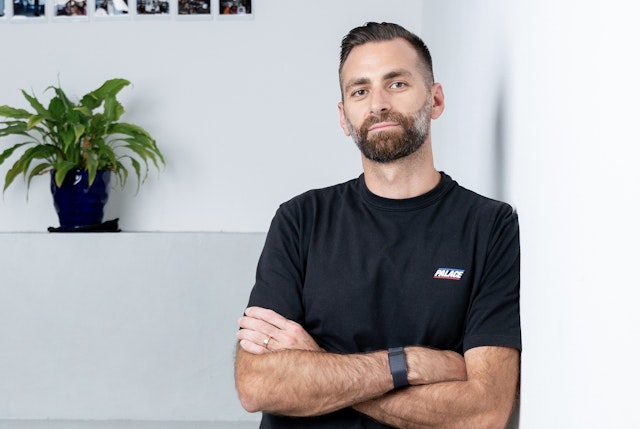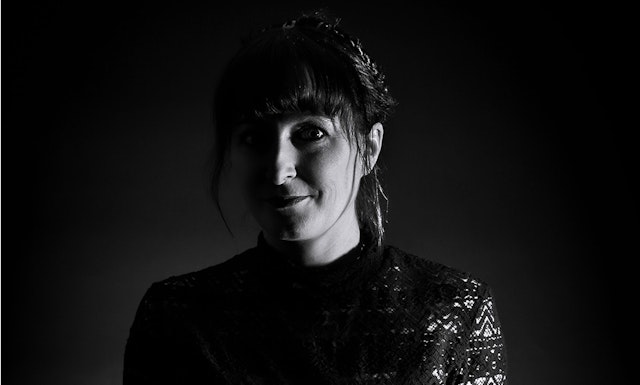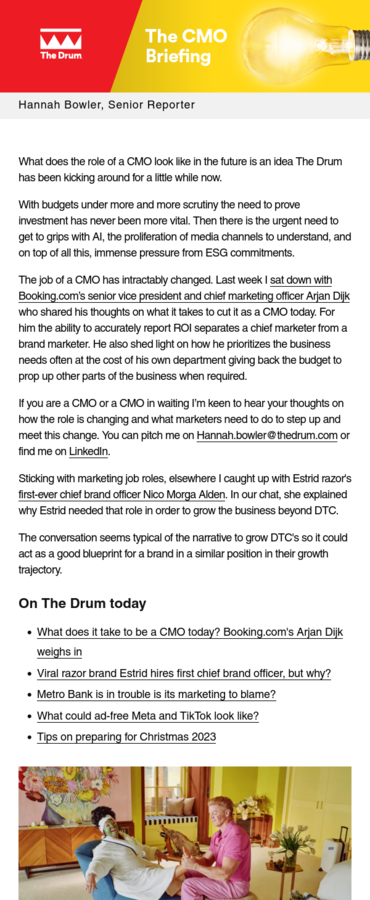24 agency leaders reveal their 2024 new business strategies
Attack or defend? Agency bosses from across the industry explain their first quarter new business approach.

How aggressive should agencies pitch, given current economic conditions? / Unsplash
Following a choppy 2023, many agency execs will be hoping for a strong start to the new year. But concerns about a UK recession haven’t lifted, while the advertising market in the US and beyond is still extremely competitive. Given the cost of pitching, some agencies might be wise to go on the defensive and grow existing client accounts.
With that in mind, we straw-polled a couple of dozen agency leaders from media, creative, digital, comms and design shops – holding company, indie and challenger alike – to find out how they planned to approach the first quarter.
Advertisement
How do you solve a problem like… choosing how much new business to pitch for in 2024?
George Sargent, chief executive officer, Arnold Worldwide: “Our focus is always on existing talent and existing clients. It’s a small industry; everyone talks. It’s true for talent and it’s true for brands. As we continue to grow, we are relentlessly focused on maintaining an atmosphere where creativity matters above all else. This is the only reason clients hire Arnold and it’s the culture that allows us to deliver the impact they’re looking for.”
Meghan Labot, chief growth officer, FutureBrand: “Regardless of the economic condition, growth must be about prioritizing new business and growing organically. This was true in 2023 and will continue to be true in 2024. We are prioritizing new business opportunities that our team will be passionate about, with clients who share our values and are striving to make a difference in people’s lives – opportunities where we can build a relationship.”
Henry Fernandez, executive director of business development, Barbarian: “Existing clients are our veins; we fuel them with innovative thinking, keeping their excitement alive as we evolve to serve them best. New accounts are our substance of health, aligning with our values and expertise. They bring fresh thinking and potential talent. The lessons from 2023 highlight discerning investments, refining our value propositions, and embracing simplicity.”

Mike Khouri, CEO, Tactical: “We have big ambitions for 2024. While our focus will always be to build long-term relationships with our existing partners, we are expanding into new markets, so new business does play into our agenda. Believe in ‘happy money.’ With the industry going through so much change, we want to focus on brands and platforms that are bold enough to be innovative and creative, as this translates into the kickass work we want to be doing in the long run.”
Advertisement
Hannah Partridge, head of client services, Amplify: “It has never been more important to double down on evaluating which opportunities are the right ones to go after and, if so, how to proceed. In 2024, we’ll be prioritizing opportunities that play to our strengths, provide scope to push the boundaries and offer true potential to build long-lasting relationships.”
Emma Robson, managing partner of growth, Ingenuity: “Retention is pivotal to business success, particularly at this time of year. 2023 was tough for many and it’s vitally important to keep your existing clients happy – they’re the ones paying your bills. Our agency selection team is busy at the moment, which suggests that there is money out there to be spent and that agencies shouldn’t be afraid of going after new business. But we’re being strategic about the new business we go after.”
Pedro Martins, chief growth officer, Total Media: “Commitment to clients always takes precedence. This dedication is likely why clients initially choose us but also continue to stay in the long term. In the instances when we do engage in a pitch, the client receives the same level of attention and dedication that our long-term clients do. This ensures that they truly understand what it’s like to work with us. This was key to our 90% pitch conversion rate last year.”
Suggested newsletters for you
James Fox, CEO, Havas London: “We take every new prospective client case by case, and it’s always about fit. Our focus is on ambition, opportunity, shared values and partnership potential – rather than the debate between new or existing accounts. But importantly, you have to ensure our new business efforts don’t come at the cost of our people or existing clients.”
Tracey Barber, senior vice-president client growth, Rapp UK: “Finding the right balance and being selective is key. The ‘Fun, Fame, Fortune’ filter is no longer fit for purpose because it’s a short-term lens and doesn’t take into consideration the wider business context. So, we have a bespoke scorecard developed against our business plan, allowing us to select the right opportunities that will not only drive short-term growth but will enable us to deliver category-defining advancements, ensuring long-term sustainable growth.”
Hannah Baker, chief marketing officer, Brave Bison: “I hate the phrase ‘defensive strategy.’ It implies that agencies should only start thinking about growing client relationships when they’re up for pitch. For us, retention done well means a constant focus on deepening and expanding our client partnerships. For 2024, our goal is to focus more on the big picture rather than getting blindsided by the inevitable peaks and troughs that happen throughout the year.”
Brent Buntin, chief growth officer, Code and Theory: “There was a lot of crawling and walking last year with AI. What has changed for us from this time last year is our ability to offer enhanced AI capabilities and high-level consulting services to our clients. This year is going to be about enabling our partners to not only keep pace, but outrun their competition. That’s equally true when it comes to existing or new business. We’re at the scale where we are not sacrificing one for the other.”
Mark Weinfeld, senior vice-president and managing director, Innocean: “Many marketers seemed to be cautious through the first half of 2023. However, as the signs of recession seemed to stagnate, several brands woke up and committed to being more aggressive come in 2024. That made Q4 a very productive period for us in terms of new business. That said, we will still be onboarding new clients in Q1, but because new business is a long play, we never take our foot off the gas.”
Kat Shafer, chief client officer, EP+Co: “It’s a balancing act, not an either-or situation. In Q1 of 2023, many were feeling overwhelmed by the threat of a recession and started the year more timidly where new business was concerned. Coming out of Q4, it feels like everybody is ready to go for it. Brands and agencies alike. I say, harness that momentum and tackle new challenges, full force. This year, we intend to be as aggressive as possible.”
Daniel Romano, co-founder and CEO, Good Moose: “Our focus has always been growing the relationship with our current clients. We are happy to bring on new clients when the fit is right, but we focus on ensuring we can retain those new partnerships while still delivering excellence to our current clients.”
Jamie Sundheim, senior vice-president of growth, Hill Holliday: “Even in the toughest of environments, we’re selective in how we pitch new business. Cultural alignment is our number one consideration; it is critical to understand whether you and a prospective client share a common set of beliefs and goals. It is equally important for us to have a deep understanding of how we can impact the prospective client’s business in a positive and ambitious way to capture attention share. It always makes the work that much more rewarding when we’re all in it together.”

Tanya Whitehouse, chief executive officer, Elvis: ”Last year was hard for agencies and clients alike. However, boom or bust, I have a perennially clear POV when it comes to new business. Firstly, your current clients should always be your priority. If you do a great job and build strong relationships, your existing accounts will grow. And then, in terms of new business, you always have to want to work with a client for more than just the income. Anything you pitch for has to fit with your values, your skillsets and your mojo. Otherwise, you won’t win it, or it won’t last.”
Ashley Bolser, founder and managing director, Bolser: “Always be pitching but in reality… turn down about half of the opportunities. Do use a scorecard to ensure there is a set budget, a real brief, clear targets, chemistry, responsiveness to questions, and only a small number of agencies involved. Don’t be flattered by the brand or ignore the limited, long-term potential. If you are going to give something away, give it to an existing client; they will be grateful and through a consultative selling process, it’s more likely to end in actual work for the agency.”
Andrew Southcott, managing director, Captivate: “Someone once said that losing a pitch is the cash equivalent of throwing a mid-size German sedan off the roof of your building. Therefore, you would expect agencies to approach the process cautiously, but everyone has a tale where they won against all odds and that outlier adversely encourages a participation decision to engage. The antidote? Have a qualification scorecard that removes the emotion from the go/no go decision and stick to the result.”
Sarah Pine, head of account services, Glow: “Our goals for 2024 are to sustain and grow our current accounts while expanding our agency’s portfolio. We’ve seen the greatest success in prioritizing and fostering our current relationships. We’re constantly asking ourselves, how can our immersion in their brand and team drive their business further? That said, last year’s writers and actors strike was an unprecedented reminder that it is critical to have a diversified account portfolio. Our approach to new business is to not ’say yes’ to all opportunities. We focus on qualified leads that fit our criteria for the greatest return and success.”
Chris Woodward, CEO, CTI Digital: “For us, it isn’t a choice between pitching versus looking after existing clients. We prioritize both but with distinct teams and distinct strategies. We’ve restructured our business so we can do this, bringing in a new chief commercial officer to look after our outbound sales, marketing and partnerships teams who are focused on new business growth. This will drive 25% of our revenue in 2024. The other 75% of our revenue comes from our client service team, who also report to our CCO. That team has grown by 30% with more senior CS folk deployed so we can strategically and consultatively collaborate with our clients better.”
Katy Hendricks, senior vice-president of business strategy and growth, Powell Communications: “Prioritizing new business over current clients is like running a mediocre quick service restaurant. You end up with unsatisfied customers, poor reviews and messy turnover. While you should be proactive and creative about new business no matter what the economic climate brings, it’s more important to make sure your clients are happy and fulfilled. They will bring more friends to the table and your loyal fanbase (and business) will grow.”

James Smith, chief growth officer, The Kite Factory: “Existing clients remain the lifeblood of any agency and deserve unwavering priority as the reason for our existence. However, amid the unpredictable climate, meticulous forecasting and an agile mindset are pivotal in strategically balancing the scales and compensating for any potential loss in recurring client income with new business revenue. It’s a delicate dance and a commitment to innovation over cost-cutting measures nobody wants.”
Dave Bennett, executive director, The Romans: “The Romans’ strategy has always been to focus on doing bold creative work for our clients – they are the priority for this and every other year. Great creative work makes clients happy, we end up doing more with them, and we attract even more brands with the ambition to bin boring PR into The Romans’s fold. It’s worked pretty well for us so far.”
David Chandler, joint managing director, Great State: “At the end of last year, we focused our investments on growth. We’re confident about our proposition and believe we’ll get a return off the back of our efforts this year and beyond. But the market is extremely competitive right now. We’re seeing agencies slashing margins to get in with clients and large network agencies investing heavily to pitch for small projects. I expect agencies without the capacity and financial backing to take a short-term hit will really struggle.”
Finished? Feel like you could have made a better argument? Give me a shout via sam.bradley@thedrum.com and I’ll clue you in on next week’s topic.


